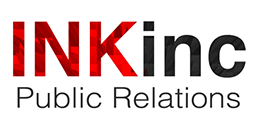One of the pillars of the way INK connects with journalists is that we always create custom-tailored pitches for individual journalists we are reaching out to. We base our pitches on that journalist’s location, outlet, beat, and stories they may already have covered. It serves our clients best to do it that way. And it serves the journalists best, too. Unfortunately, the INK way is far from common.
Troy Diggs is a morning news producer for WDAF-TV in Kansas City. He’s tired of getting bad PR pitches. And he’s not alone. In a Twitter conversation with other journalists this month, Diggs noted that in the last two weeks he has been “flooded with PR pitches from national agencies with no local relevance to my audience. If you’re with one of these places, go ahead and take my name off your list and keep going. Save me the trouble.”
I don't know what happened in the last 2 weeks, but I have been flooded with PR pitches from national agencies with no local relevance to my audience. If you're with one of these places, go ahead and take my name off your list and keep going. Save me the trouble.
Thanks.— Troy Diggs (@amnewsboy) February 14, 2022
A Huntsville, Alabama digital journalist chimed in that this is the “vast majority of the PR emails I get.”
That's the vast majority of the PR emails I get.
— Bobby Stilwell (@bobbystilwelltv) February 14, 2022
Technology has made it very easy to pitch hundreds of reporters quickly, but that doesn’t mean it’s better. Using some common PR “tools”, it’s possible to make a list with the emails of 1,000 local TV news producers, write a generic pitch about a client, and have it hit their inboxes in a matter of minutes. This is not “sophisticated media outreach using the latest technological tools”. It’s spam. PR folks who do this are no better than whoever keeps sending me emails about my car’s warranty or the “lovely single ladies in your area”.
Diggs noted that this approach, “shows me you didn’t take the time and effort to try and craft something I’d be interested in. Long story short: if it’s relevant to my audience, hit me. If it’s just trying to get eyeballs, all you’ve done is annoyed me.”
He’s 100% correct. The best way to respect a journalist’s time (and your client’s budget) is to pitch thoughtfully, specifically, and with the journalist’s needs in mind. Anything else is worthy of the junk mail folder.
